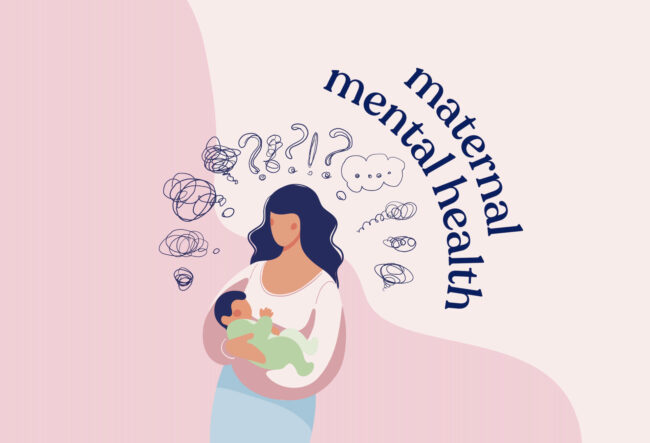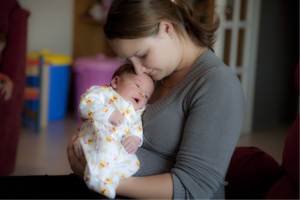Maternal Mental Health within the New EU Mental health proposal
27.06.23

MMM welcomes the European Commission’s new proposal addressing mental health and bringing a much-needed focus on various aspects of mental well-being. The proposal’s emphasis on mental health promotion, prevention, and early intervention demonstrates a proactive approach to tackling mental health challenges in the EU before they escalate.
Recognizing the significance of mental health among youth and vulnerable groups, such as single mothers in poverty, is crucial as these populations often face unique difficulties and require targeted support. By prioritizing their mental well-being, the proposal acknowledges the importance of inclusivity and equity in mental health services.
The Commission’s recognition of the higher prevalence of depression among women, underscores the importance of prioritizing women’s mental health. In particular, we believe that the only way to create a more supportive and equitable society is by acknowledging and demanding that postnatal depression, pregnancy-related mental health issues, and the broader challenges that women face are addressed urgently. Promoting mental health from the very start for all-human beings is the correct approach if we want to impact future generations. This is the right path to follow if Europe wants to avoid the continued € 600 billion expenditure every year on mental health.
As MMM highlighted in its contribution to the Call for Evidence:
 Nearly 1 in 5 women worldwide will develop mental health problems during pregnancy or within the first year postpartum. Despite these numbers, the provision and integration of quality mental health services into a comprehensive package remains inadequate and under realised across the EU.
Nearly 1 in 5 women worldwide will develop mental health problems during pregnancy or within the first year postpartum. Despite these numbers, the provision and integration of quality mental health services into a comprehensive package remains inadequate and under realised across the EU.
Leaving maternal health problems “untreated, has long-lasting detrimental effects on the mother (e.g., increased risk of further clinical episodes), the mother-child relationship (e.g., bonding) and the child (e.g., socio-emotional, and cognitive development).
The proposal’s emphasis on improving mental health systems and breaking the stigma surrounding mental health issues is laudable. It highlights the need for robust mental health infrastructure, including accessible services and resources, to ensure that individuals have the support they require. By addressing stigma, society can create an environment where they can feel comfortable seeking help and discussing mental health openly.
The recognition that mental health support should extend beyond medical settings is noteworthy. Embedding mental health resources and support systems within schools, workplaces, and other community settings can increase accessibility and facilitate early intervention.
In summary, the proposal’s comprehensive approach to mental health, encompassing prevention, access to services, breaking stigma, and adopting a global perspective, reflects a commendable effort by the EU executive. It underscores the importance of mental health and well-being as fundamental components of overall health and advocates for a society that is supportive, inclusive, and proactive in addressing mental health challenges.
At MMM we now call on the EU and Member States to set concrete targets, allocate the appropriate funding and develop monitoring programs to ensure mental health support for all. In particular, we recall the importance, if we want healthy societies, of recognizing and prioritizing the very first start of all lives: the early childhood.
The New EU Gender Equality Roadmap : A Call for Inclusion of Mothers
04.03.25
The European Commission’s initiative on a new Gender Equality Roadmap post-2025, marks a significant step forward in addressing gender disparities across the European Union. Make Mothers Matter (MMM
Breaking the Cycle: Gender Equality as a Path to Better Mental Health
18.03.25
The Council of the European Union has taken a decisive step in recognising the vital connection between gender equality and mental health.
Europe Must Listen to Mothers: Our landmark report heads to the European Parliament
28.08.25
On 22 September 2025, the voices of mothers will take centre stage in Brussels. For the first time, Make Mothers Matter (MMM) will present its State of Motherhood in Europe








